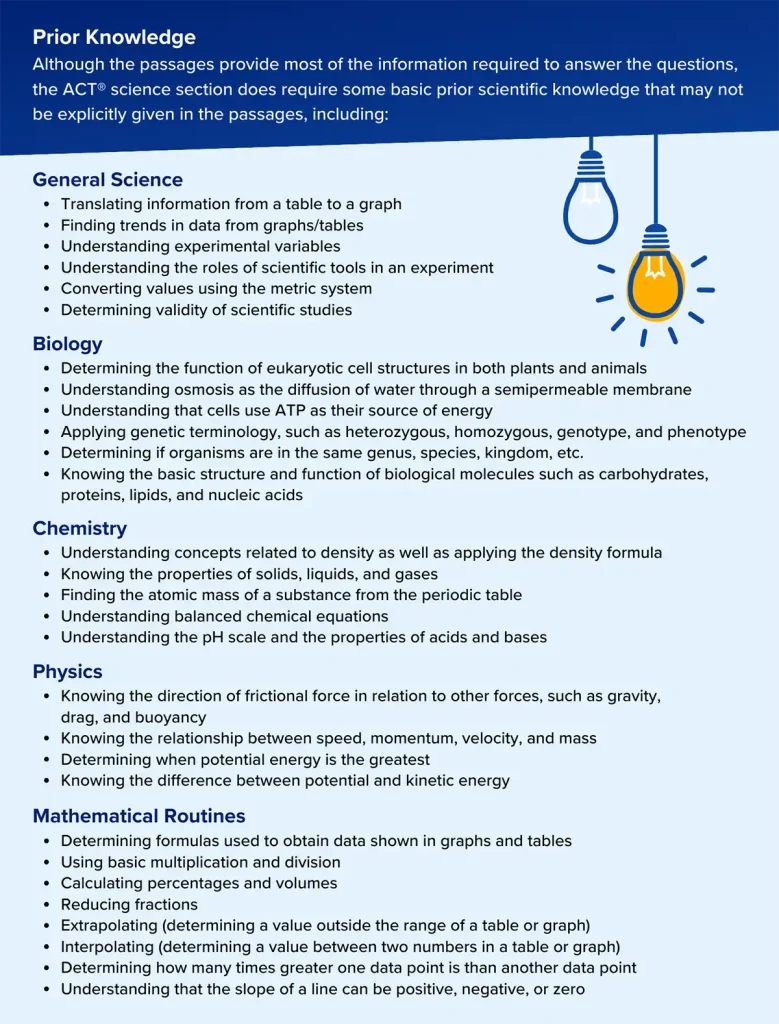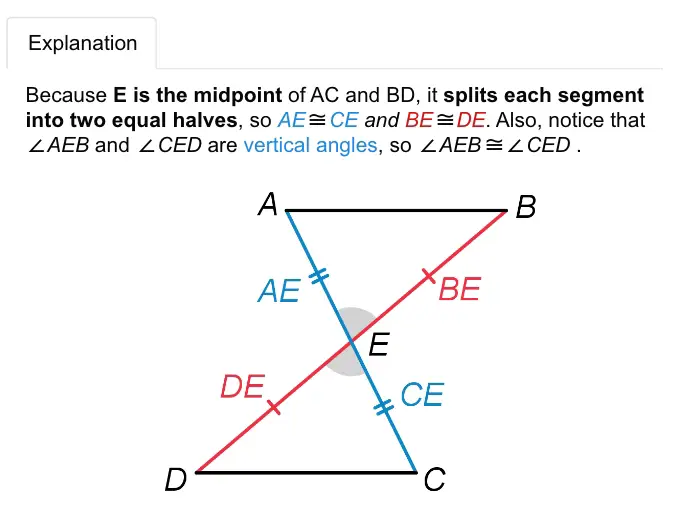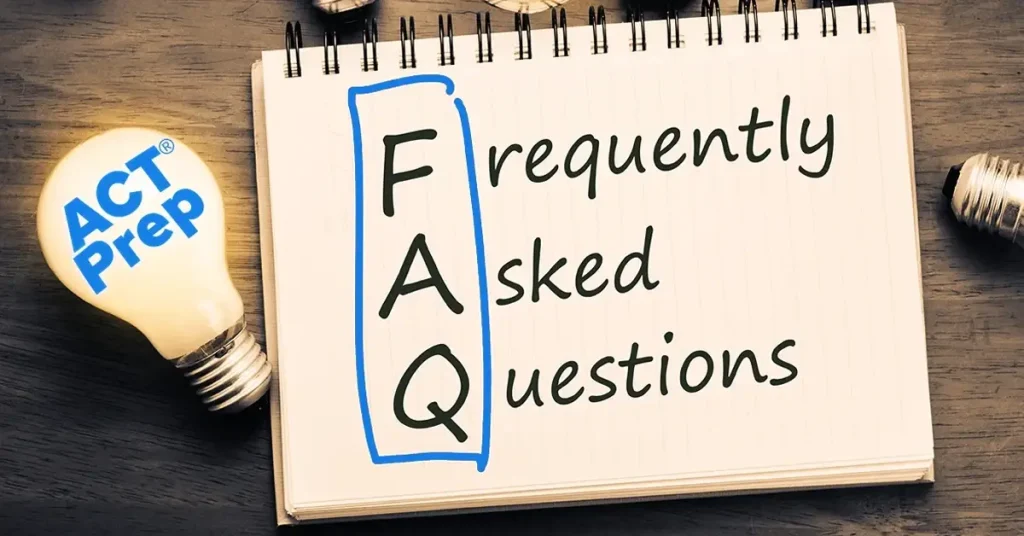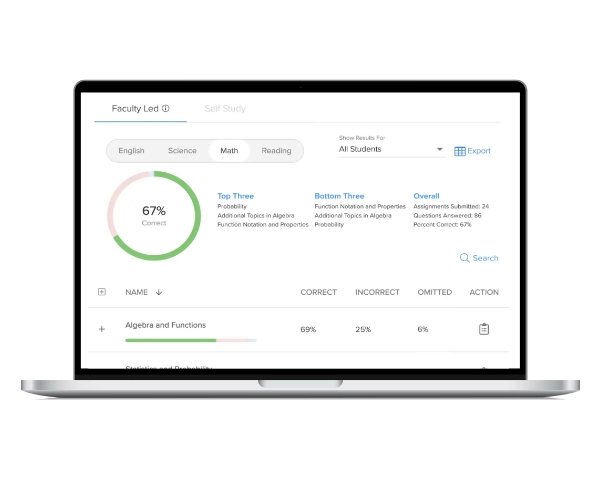At UWorld, our aim is to help hardworking teachers who are dedicated to preparing their students for the ACT® exam. To provide you with the best support, we’ve compiled these ACT FAQs, drawing from the expertise of our in-house UWorld professionals. If you’re an ACT teacher getting your students ready for this important college-readiness test, these frequently asked questions will help you guide your students in their ACT preparation journey. From online resource recommendations to effective pacing strategies, mastering the ACT reading, math, and science sections, approaching the optional essay, and helpful last-minute preparation tips, we’ve got you covered every step of the way.
ACT FAQs: What ACT Teachers Want to Know about Exam Prep

How can students effectively use online ACT resources to supplement their preparation?
Online resources are essential for ACT preparation because they offer students a flexible way to improve their skills. These resources include practice materials, full-length tests, and expert guidance designed to meet each student’s unique needs and schedules. UWorld, in particular, is a valuable tool for ACT preparation. ACT teachers can incorporate UWorld into their students’ study plans by including it in their lessons or suggesting it as an extra resource. UWorld provides a wide range of ACT practice questions that closely resemble the real exam, giving students a realistic test-taking experience. It also provides detailed explanations for both correct and incorrect answers, helping students understand the underlying concepts.
Teachers can use UWorld to track their students’ progress, identify areas that need improvement, and assign specific practice tasks. In short, online resources like UWorld empower students to prepare effectively for the ACT, while ACT instructors can use them to monitor and support student progress.
What’s the best approach for pacing through the ACT test, including strategies for handling different question types within each section?
When teaching students how to manage their time during the ACT test, there are many smart strategies ACT teachers can share for each of the exam sections.
In the English section of the ACT, there are 75 questions, and students have only 45 minutes, which means about 30 seconds per question. They can allocate around eight minutes for each passage to keep track of time.
ACT Teachers can show their students how to use these questions as a roadmap for reading each passage. This means reading a question first and then looking in the passage for the answer, which can reduce the student’s need to spend time re-reading.
Additionally, students can plug in answer choices if they’re unsure about which is correct. Correct answers in English usually have clear meanings and good sentence structure, so if one choice makes the most sense when plugged into the sentence, it’s probably the correct answer.
In the math section, there are 60 questions to answer in 60 minutes, so time is precious. This section covers different math topics like algebra and geometry, and the questions are of different difficulty levels. Because of this, ACT teachers should advise their students to start with the questions they feel most confident about. This helps them efficiently earn more points by getting the easier questions finished first. Once those are done, they can focus on the harder questions without worrying about running out of time.
For the reading section, students have only 35 minutes to read four long passages and answer 10 questions for each one. It’s a good idea to encourage students to skip around and start with the passage type they find most comfortable. This way, if time runs out, they’ve tackled the sections they’re likely to do better in.
The Conflicting Viewpoints Passage is different, so it’s best to save it for last. It involves two short essays with differing views, and you need to read the whole thing to answer the questions. Students should aim to have at least five minutes left for this passage. If they have less time, they should skip the reading, go to the questions, and then come back to skim and answer as best as they can.
Teachers tutors can guide their ACT students in pacing for the science section by teaching them to focus on specific parts of the passage as directed by the questions. Unlike the reading section, students usually don’t need to read the entire passage unless it’s necessary to answer the questions. For passages like Data Representation and Research Summaries, it’s often not needed. Students should tackle questions that require understanding the entire passage and drawing conclusions last. This approach can help them manage time effectively during the ACT science section.
Lastly, ACT educators can help students with the optional ACT writing essay by suggesting they begin with the introduction and conclusion paragraphs. These parts give the essay a good structure. Spending about 5-10 minutes on each of them is a good idea. Tutors should stress that writing clearly and explaining their viewpoint on the issue is crucial. It’s also important not to rush; they might forget important points or arguments if they do. This way, students can do well on the ACT Writing section.
What are the most effective strategies for approaching the ACT Reading section, including dealing with dense passages and time constraints?
When helping your students prepare for the ACT Reading section, begin by telling them to start with the easier passages to feel more confident and save time. Additionally, before they start reading a passage, they should quickly scan all of the questions paired with it. This helps students understand what’s important to note from the passage and what to focus on, so they don’t waste time on unimportant details.
Educators can also teach their students to look for context clues in the passage itself. These clues are like signs on a road, guiding students through the passage’s ideas and helping them understand difficult words and concepts. Practice tests can help with this, as well, as they make students more familiar with the test and help them read faster.
What strategies can students use to excel in the ACT Math section, especially for the more complex problem-solving questions?
To help students do well in the ACT Math section, educators should encourage their students to start with the questions that seem easiest to them, rather than feeling like they have to complete each of the questions in order. This builds their confidence, and they can save the tougher ones for later.
In fact, before solving any math problems, students should quickly scan through all of the questions, first. If a math problem seems too tricky, students should begin with another easier problem and then return to the tricky one later. Understanding how to properly use their calculator in advance can also help students work through tricky problems by helping them check their answers.
What’s the significance of the ACT Science section, and how can students prepare effectively for it?
The ACT Science section is very important because it tests how well students can understand and use information from science passages and graphs. It covers topics like biology, chemistry, physics, and Earth/space sciences. Most questions are based on what’s in the passages, but some need limited knowledge from high school science classes.

To prepare students well for the ACT Science section, it’s crucial to make sure they pay attention in their science classes. Teachers can encourage them to create flashcards and review basic science ideas in chemistry, biology, and physics. Knowing things like the pH scale, DNA, and gravity is really helpful.
In this section, students can get a score up to 36, and there’s no punishment for wrong answers. So, they should aim to answer every question. But students need to be careful with time because they only have 35 minutes for 7 passages and 40 questions. Teachers can help by having them practice with a timer to get better at pacing themselves.

How should students tackle the optional ACT essay section, and what are the key components of a successful essay?
To do well in the optional ACT essay, students should follow these steps. First, read the essay topic carefully. Understand why it’s still a subject of debate.
Next, look at the three given viewpoints: one in favor, one against, and one neutral. Understand what each one says and what it doesn’t say.
Then, make your own viewpoint. Use the given viewpoints but make yours special. This is important for a good score. Organize your essay like this:
- Start with an introduction. Use a sentence to talk about the main topic and say your viewpoint.
- Write the first body paragraph. Start with a sentence about the opposing side. Talk about the viewpoints that support it, give an example, and explain why you disagree.
- Write the second body paragraph. Begin with a sentence about your own viewpoint. Explain it, discuss the given viewpoints that support it, give an example, and repeat your viewpoint.
- End with a conclusion. Summarize what you talked about, repeat your viewpoint and reasons, and say your final thoughts.
If there’s time, students should proofread, with a focus on checking for big mistakes. Practicing this structured approach can help students excel in the ACT essay section.
What should students do if they encounter a particularly challenging question on the ACT and get stuck?
When students come across a really tough ACT question and feel stuck, ACT teachers can help. First, tell them not to spend too much time on it. It’s better to move on to easier questions and mark the hard one to come back to later.
If the hard question is still confusing when they return, don’t let them skip it. Guessing is okay because there are no penalties for wrong answers in the ACT. Guessing gives a chance for points, unlike leaving it blank.
Also, understand that tests can stress students. Teach them to take short breaks to relax and refocus. This can make tough questions feel easier.
What should students do in the final week leading up to the ACT to maximize their performance on test day?
In the week before the ACT, students should work on improving their skills and feeling more confident. Teachers can help by using UWorld with their students for final reviews and practice.
Additionally, ACT teachers can give advice on handling test-day stress and how to stay calm during the exam. They can also remind students to get good sleep and eat well in the days leading up to the ACT test.
The day before the ACT, students should primarily focus on relaxing and feeling confident. Teachers can review their testing strategies, remind students to make sure they have their ID and needed testing supplies, and encourage students to get a good night’s sleep.
What are the most common traps and pitfalls that students should be aware of when taking the ACT?
When your students take the ACT, there are common mistakes they should watch out for. First, they should be cautious about blindly following the ACT’s written directions. Sometimes, the test’s directions and recommended approaches may not be the best for all students. Instead, teachers can help their students find strategies that suit their strengths and preferences, even if they deviate from the standard recommendations.
Time management is another common struggle on the ACT because each section is timed. Students should plan how to spend their limited time wisely, practicing their pacing in the weeks leading up to the ACT and planning to skip questions they find particularly challenging.
Furthermore, answering the questions in the order presented on the ACT’s order might not be the best choice. Encourage your students to consider adopting their own Personal Order of Difficulty (POOD) by tackling the easiest questions first and then returning to more challenging ones.
Some students also avoid writing down their work, thinking it will save time. However, using scrap paper and marking up passages can prevent errors and enhance accuracy. Finally, advise your students to avoid the mistake of looking for the correct answer only. Instead, teach them to use the Process of Elimination (POE) to eliminate incorrect options, especially when multiple answers seem plausible or none seem right. By being aware of these common pitfalls, your students can improve their performance on the ACT.
What’s the significance of the ACT score range, and how can students set realistic score goals?
A good ACT score is important for college admissions, but what’s considered good can vary. It often falls around 24, which is at or above the 75th percentile. To set realistic score goals, students should aim to reach or exceed the middle 50% of ACT scores accepted by their target colleges. However, some schools have made the ACT optional due to COVID-19, so students should check each college’s requirements.
The ACT has four sections: English, Math, Reading, and Science, each scored from 1 to 36. To get a good overall score, around 24 in each section is a target. Percentiles help compare scores with others. What’s considered good also depends on the colleges. Some accept scores near the national average of 21, while competitive ones prefer scores in the 32-36 range.
For the optional ACT Writing section, a good score is usually 8 or higher on a 2-12 scale. It’s essential to check college requirements before taking it, as it adds to the test cost. Setting realistic score goals is crucial, considering both college expectations and personal strengths.

Key Takeaways
As ACT educators, we understand that you play a big part in helping your students reach their goals on the exam. We, at UWorld, hope these ACT FAQs and their answers give you some useful information and strategies to share with your students.
Discover how implementing UWorld’s Online Preparation for the ACT Exam can help you prepare your students for success on the test.

References
- Managing your time on the SAT or ACT. Get Schooled. (2023, April 11). https://getschooled.com/article/4901-managing-your-time-on-the-sat-or-act/#:~:text=Give%20yourself%20eight%20minutes%20per,with%20five%20minutes%20to%20spare.&text=This%20means%2C%20read%20the%201st,answer%20in%20the%20passage%2C%20etc.
- ACT reading strategies to boost your score. The Princeton Review. (2023). https://www.princetonreview.com/college-advice/act-reading-strategies
- admin http://wpapp.kaptest.com/wp-content/uploads/2020/09/kaplan_logo_purple_726-4.png. (2022, November 4). 10 Must-Know ACT Math Tips. Kaplan Test Prep. https://www.kaptest.com/study/act/10-must-know-act-math-tips/
- Pegula, K. (2022, February 21). How to practice for the Act Science Section. SoFlo SAT Tutoring. https://soflotutors.com/blog/how-to-practice-for-the-act-science-section/#:~:text=You’ll%20need%20to%20understand,skills%20for%20a%20few%20questions!&text=Familiarizing%20yourself%20with%20these%20basic,score%20and%20a%20great%20score.
- Sample act essay prompt (and how to tackle it). The Princeton Review. (n.d.). https://www.princetonreview.com/college-advice/act-writing-prompt
- Wignall, A. (2022, December 22). Don’t know the answer? getting through an SAT/ACT question. College Raptor Blog. https://www.collegeraptor.com/getting-in/articles/act-sat/stuck-act-sat-question-heres-get-test/#:~:text=Skip%20It%20and%20Come%20Back,require%20your%20time%20and%20attention.
- 6 Common ACT Mistakes Test Takers Make. The Princeton Review. (n.d.-a). https://www.princetonreview.com/college-advice/common-act-mistakes
- Muniz, H. (2023, March 21). What is a good ACT score?: BestColleges. BestColleges.com. https://www.bestcolleges.com/blog/what-is-a-good-act-score/#:~:text=Each%20subject%20is%20scored%20on,those%20of%20other%20test%2Dtakers.




